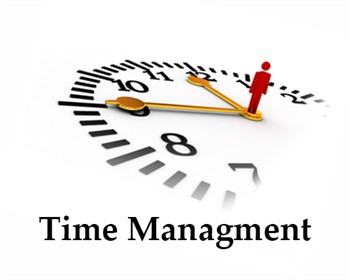Multitasking Versus Time Management: Which Prevails?
I often see “heavy multitasker” listed as a professional description on résumés and profiles on social networking sites. In fact, I have described myself as a great multitasker. But as I read more about multitasking as it relates to successful project management, I am learning that it is better to be a strong time manager than a multitasker. Here is why.
Multitasking is defined as performing two or more tasks simultaneously. It can also involve switching from one task to another or performing a number of tasks in rapid succession. All humans multitask on daily basis, whether at home, school or in the office. In fact this morning, I completed a handful of tasks simultaneously: I checked my email by smart phone, listened to the news on the TV, and even managed to have a heated discussion with my son on the benefits of a coat during winter. I felt nearly super human. However, what I perceive as high performance is actually impaired performance by nearly 40% according to some research.

I recall a 2009 NPR News interview with Stanford University professor Clifford Nass on multitasking. He talked about his study which suggested that multitasking actually weakens cognitive ability and brain function. In his study, they focused on three key areas:
- The ability to filter relevant information from non-relevant information.
- The ability to manage one’s working memory, so essentially filing information away for immediate recall.
- The response rate of switching from one task to another.
His findings surprisingly concluded that heavy multitaskers were attracted to non-relevant information, could not recall information quickly, and were slower and actually worse at switching tasks. And there is no gender bias here either: men and women are equally bad.
Time management tips
So from a project management perspective, what should I do on a daily basis to improve my overall performance? The answer is practice good time management. Here are a few time management tips to consider:
- At the start of the day, plan your day. Assess the items requiring your attention. Keeping a schedule of your daily tasks and obligations will help to minimize your stress. A good planning system, like Franklin Covey, or even MS Outlook can help you organize your day.
- Prioritize your daily tasks. Compile a task list, putting the most time-sensitive tasks at the top. If you have 20 tasks on your list, how likely are you to get through them all in one day? This is when you reassess the list and either plan forward less critical tasks, delegate to another teammate, or simply put your foot down to the task altogether.
- Block your calendar. Having trouble getting to that big project or task? Block out time on your calendar for it as you would a meeting. This way you are more likely to get it done in one go.
- Get into the habit of setting time limits for your tasks. For example, reading and answering email can consume your whole day if you let it. Instead, set a limit for this task and stick to it. I find checking email every 60 minutes allows me to focus more on planned tasks. Tasks should drive your day, not email.
- Limit distractions. Sometimes the simplest way to increase your productivity is to put up the do not disturb sign to colleagues and other distractions like Skype, email or SMS.
- Don’t be afraid to take a break if you need it. Too much stress can derail your productivity. When you need a break, take one. Go for a walk or do some quick stretches at your desk to help you refresh and reset.
- Slow it down. A good time manager does not knee-jerk react, but instead takes the time to understand and craft an appropriate action plan or response that makes the most efficient use of time and resources.
Remember, multitasking does not equate to higher productivity and output. In fact, it is potentially detrimental. Focusing on one task at a time not only improves efficiency, but quite possibly contributes to mental prowess.
References:
- Multitasking May Not Mean Higher Productivity. (2009). Talk of the Nation, National Public Radio.
- Cherry, Kendra. Multitasking The Cognitive Costs of Multitasking
